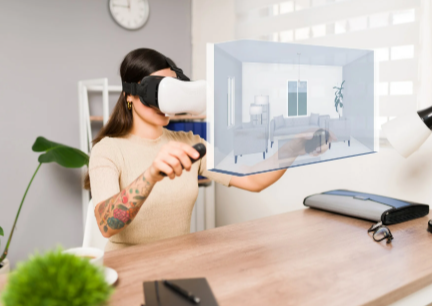How Virtual Reality Is Changing Real Estate Tours
Virtual reality is increasingly being integrated into real estate tours, offering a transformative approach to property exploration. This technology provides an immersive experience that allows potential buyers to engage with listings in a way that traditional methods cannot achieve. Consequently, agents can present multiple properties efficiently, optimizing their workflow. As the adoption of VR expands, it raises questions about its long-term impact on market dynamics and consumer behavior. What implications does this shift hold for the future of real estate?
The Rise of Virtual Reality in Real Estate
As the demand for innovative solutions in the real estate industry continues to grow, virtual reality (VR) has emerged as a transformative tool that enhances property viewing experiences.
Virtual showings enable prospective buyers to engage with listings remotely, while advanced property visualization techniques allow for a more immersive understanding of spaces.
This technology not only streamlines transactions but also empowers clients with greater autonomy in their decision-making processes.
Enhancing the Buyer Experience With Immersive Tours
Immersive tours are revolutionizing the buyer experience in real estate by providing a level of engagement that traditional methods cannot match.
These immersive experiences allow potential buyers to conduct virtual walkthroughs, enabling them to explore properties at their own pace.
This interactive approach fosters a deeper emotional connection and understanding of the space, ultimately empowering buyers to make informed decisions in their property search.
Streamlining the Selling Process for Agents
Virtual reality (VR) technology significantly streamlines the selling process for real estate agents by enhancing property presentations and improving client interactions.
By facilitating immersive virtual tours, agents experience increased efficiency, allowing them to showcase multiple properties simultaneously.
This not only accelerates sales cycles but also empowers clients to make informed decisions swiftly, ultimately driving higher conversion rates and fostering a more dynamic real estate market.
Future Trends: What’s Next for VR in Real Estate
The integration of virtual reality in real estate is poised for significant evolution, driven by advancements in technology and changing consumer expectations.
Future trends indicate a convergence of augmented reality and smart technology, enhancing property visualization and streamlining decision-making.
As clients increasingly seek immersive experiences, real estate professionals will leverage these innovations to provide personalized tours, ultimately transforming how properties are marketed and sold.
Conclusion
As virtual reality continues to redefine real estate tours, it serves as a digital key unlocking the door to immersive exploration. Much like a skilled conductor guiding an orchestra, VR harmonizes the experiences of buyers and sellers, ensuring seamless interactions and informed decisions. With 74% of agents reporting enhanced client engagement through VR, the technology not only captivates potential homeowners but also transforms the real estate landscape, paving the way for a future rich in innovative marketing strategies.




